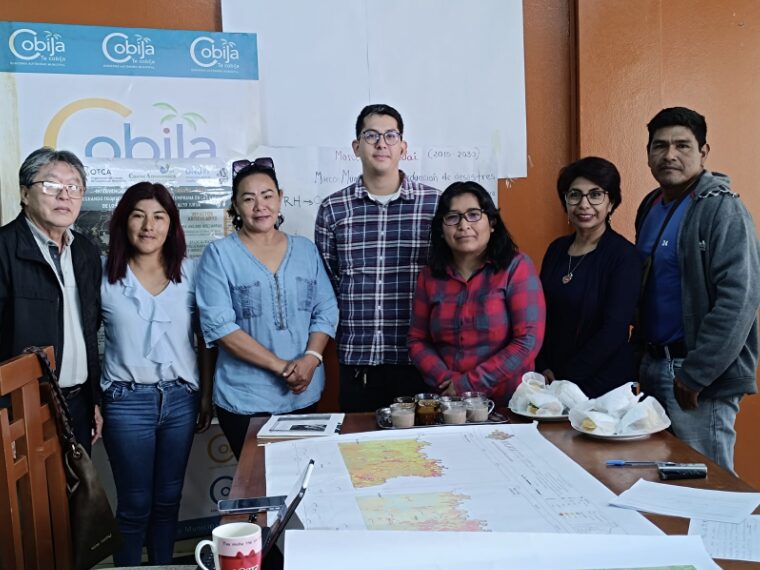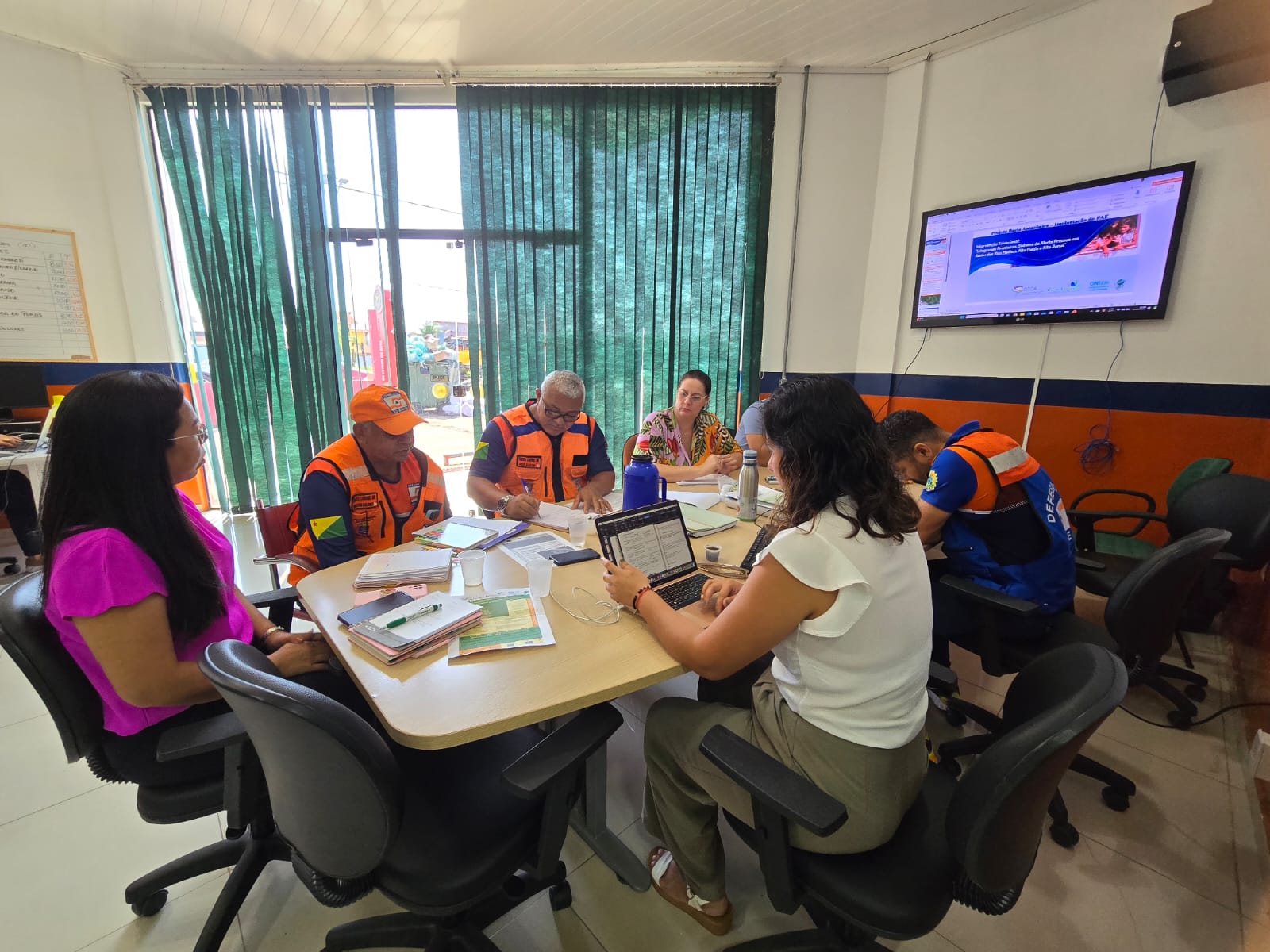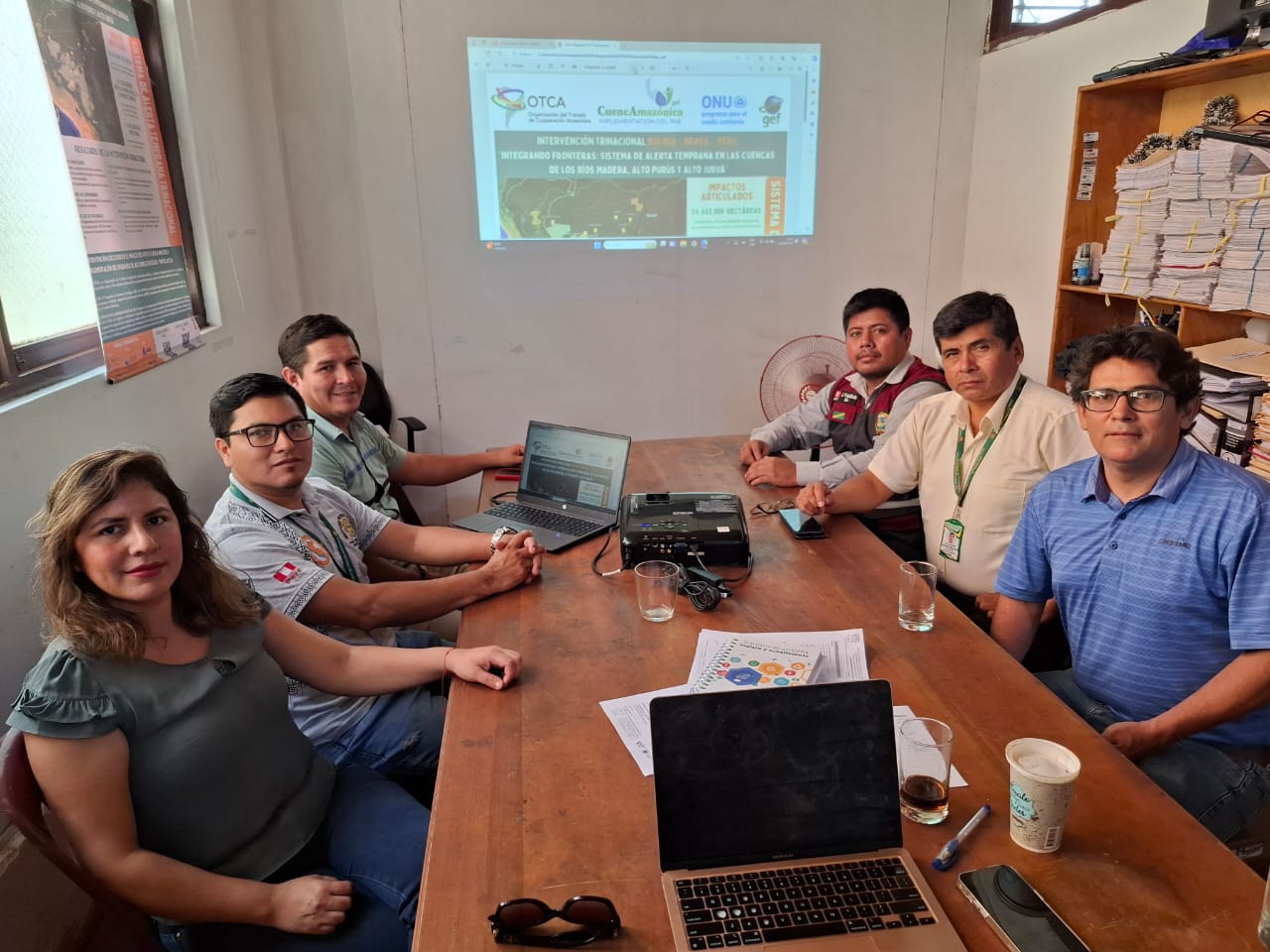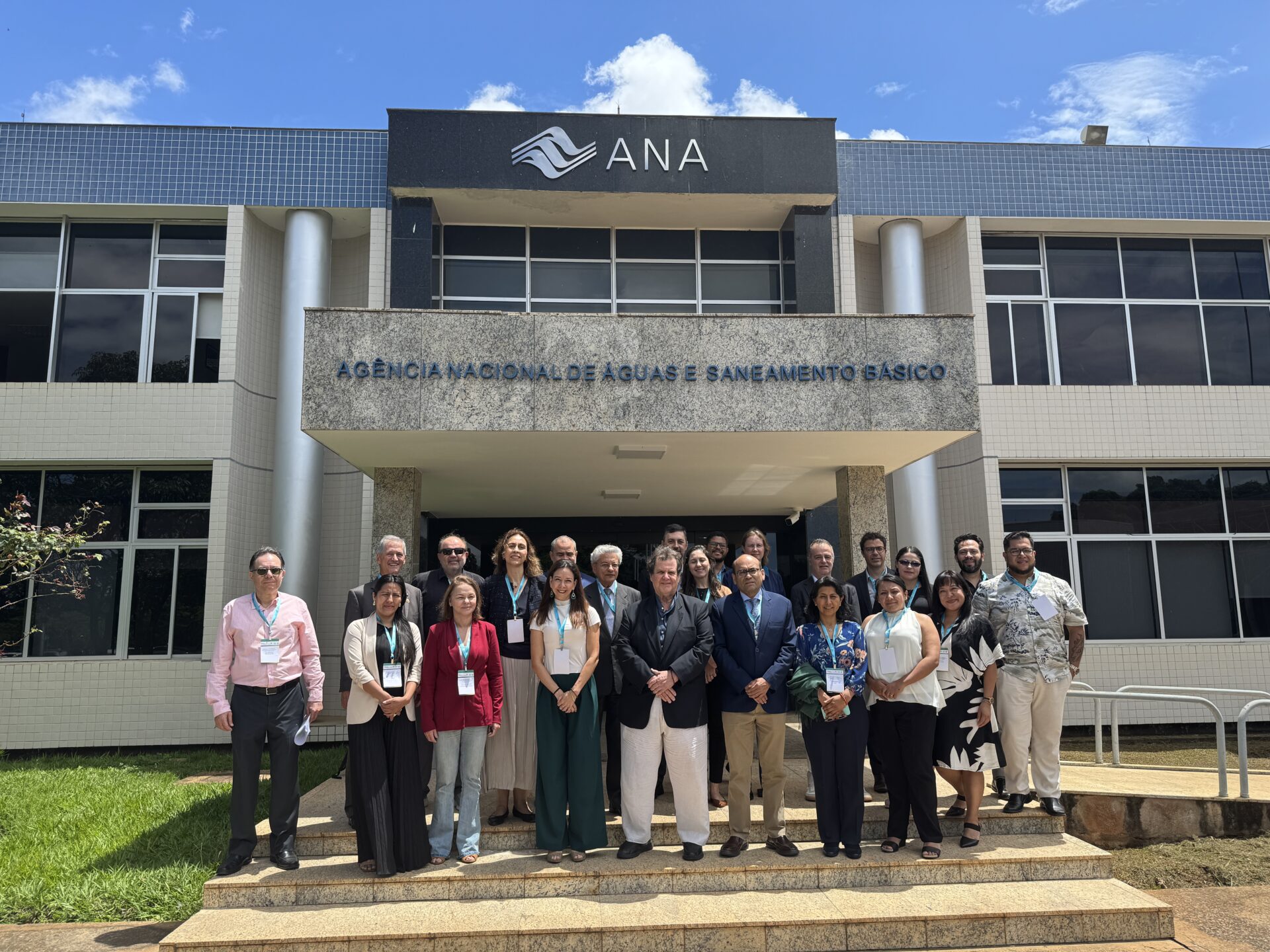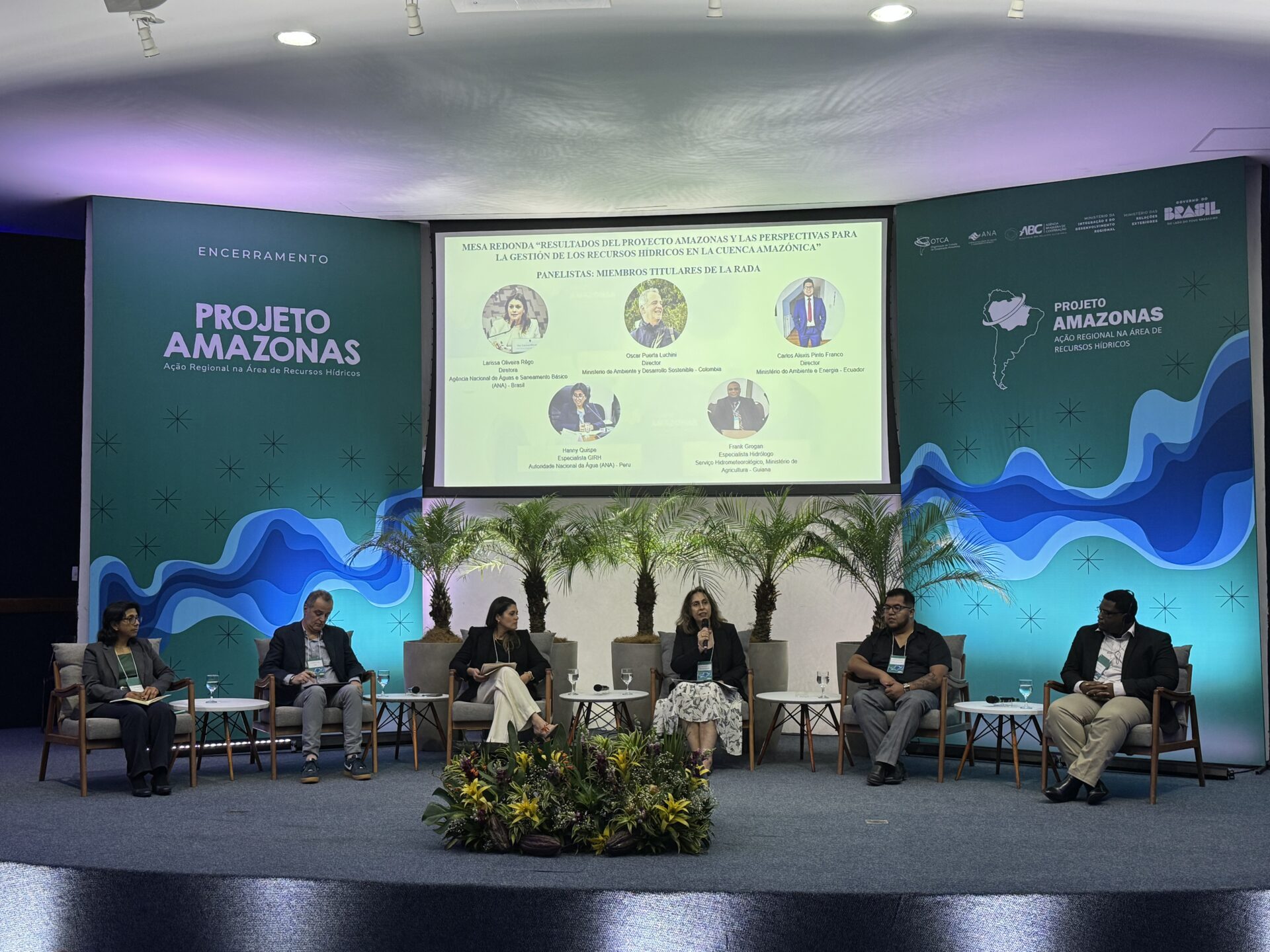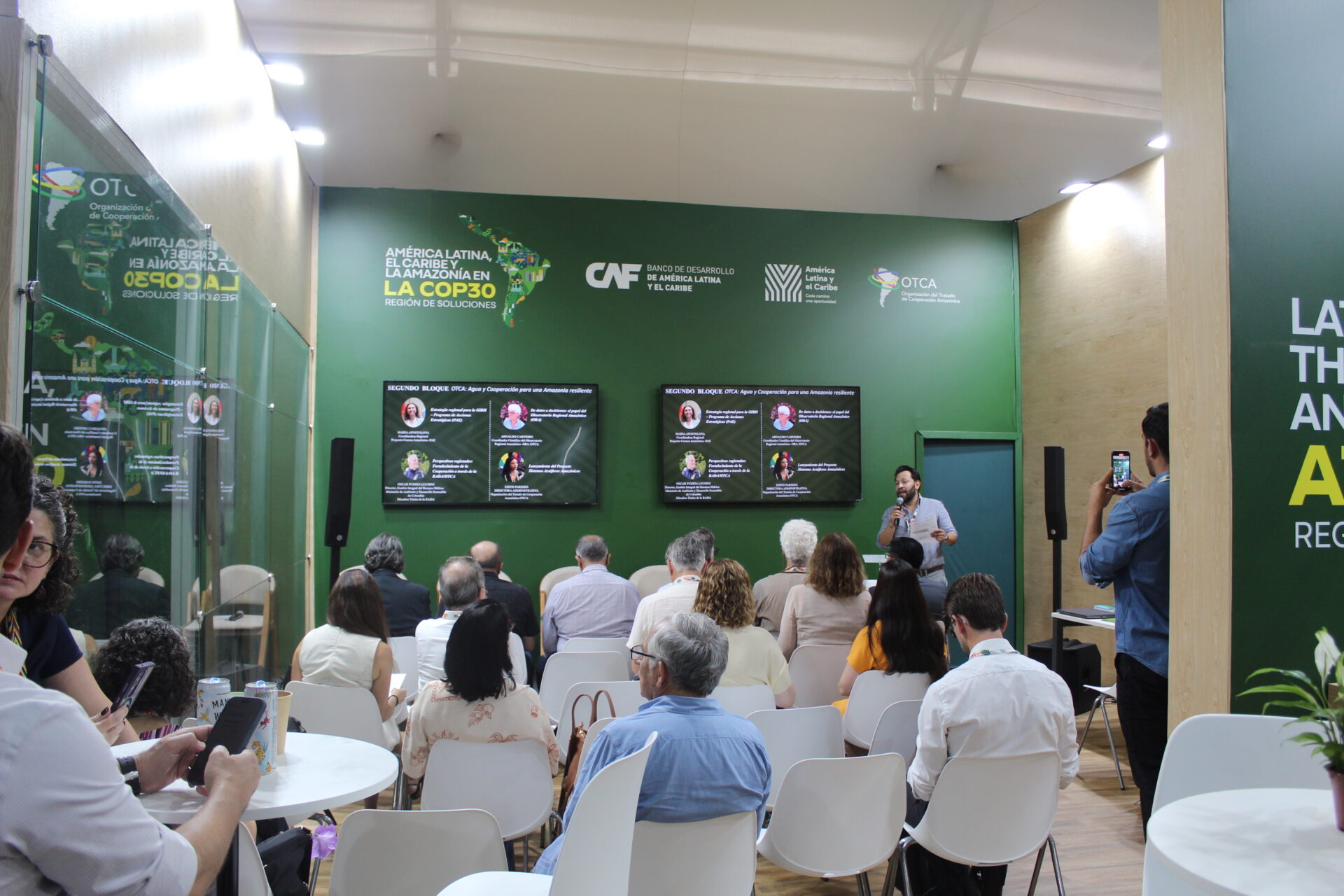The climate change adaptation actions of the Amazon Basin Project (ACTO/UNEP/GEF) include the implementation of an early warning system in the transboundary region between Bolivia, Brazil, and Peru, where the occurrence of extreme weather events has become increasingly frequent, with significant impacts on populations and ecosystems. This year, due to severe drought, the Madeira River, the main tributary of the Amazon, reached a record low level in the Brazilian Amazon, unprecedented in the historical series that began in 1967. In the face of events like this, it is essential to monitor and anticipate disaster risk scenarios to make decisions that protect the lives of vulnerable people and animals.
The Trinational Early Warning System will cover an area of 54 million hectares, directly benefiting 16 million people in municipalities in the departments of Madre de Dios in Peru, Pando and Beni in Bolivia, and the states of Acre, Amazonas, and Rondônia in Brazil. Its implementation began in July with a series of interviews with authorities and stakeholders from 15 municipalities in the Amazon border region to assess the current state of extreme weather event risk management, gathering information that will support the system’s implementation process.
Preliminary survey results indicate the need to strengthen the response capacity of states and municipalities and to provide specific equipment and training in risk prevention management for priority communities. The survey also revealed the interviewees’ interest in initiating coordinated and collaborative work of a transboundary nature, given its importance to the region.
More than 100 representatives from municipalities, state, and departmental environmental agencies, as well as Civil Defense, fire departments, and universities, were interviewed. Through a semi-structured questionnaire, the interviews addressed key topics related to flood and drought risk management in the region, such as physical and logistical conditions, technical capacities, reference regulatory frameworks, and the levels of interaction between municipalities, states, departments, and local communities. It also sought to gauge the interviewees’ knowledge of the Sendai Framework for Disaster Risk Reduction, an international document adopted in 2015 by United Nations (UN) member states.
- Meeting with representatives of the municipalities of Cobija, Bolivia
- Meeting with the Civil Defense of Acre, Brazil
- Meeting with the Tampobata Risk Management Team, Peru
The consolidated results of the field survey will be presented during the trinational workshop, which will bring together the region’s key actors for the participatory development of the Trinational Early Warning System (EWS) implementation plan, organized by the Amazon Basin Project in partnership with the Ministries of Foreign Affairs, Environment, Water, and Civil Defense of Bolivia, in addition to Brazil’s National Water and Sanitation Agency, and Peru’s Water Authority. The event’s organization also has the support of Bolivia and Peru’s meteorology and hydrology services.
Trinacional Workshop
The participatory process for implementing the Trinational EWS will begin in October with the workshop “Integrating Borders: Early Warning System in the Madeira, Upper Purus, and Upper Juruá River Basins,” which will bring together over 50 participants from the three countries in the city of Rio Branco, state of Acre (Brasil), including representatives from the three levels of government – federal, departmental, state, and municipal – linked to risk management, mayors and other municipal authorities, local early warning system managers, academics, and community leaders from the three countries.
Based on the information collected in the field survey, the workshop participants will gather in working groups to develop the conceptual proposal for the Trinational EWS, focusing on collaboration between the three countries and the inclusion of local communities. Recommendations for the formalization of institutional agreements will also be made.
The collaborative implementation process of the Trinational EWS, which has this trinational workshop as its starting point, includes the immediate formation of a network of interested and engaged stakeholders in risk management to ensure the system’s sustainability and efficiency. Among those interviewed by the Amazon Basin Project during the initial field visits, the vast majority expressed interest in actively participating in the process.
Related news
Post
17 de December de 2025
On December 11, the Amazon Basin Project (ACTA/UNEP/GEF) held a Seminar on the Exchange of Cooperation Experiences for the Management [...]
Post
16 de December de 2025
The roundtable discussion “Results of the Amazon Project and Prospects for Water Resource Management in the Amazon Basin” was held [...]
Post
28 de November de 2025
Water is the central element through which most of the impacts of climate change manifest themselves: more intense droughts, extreme [...]

